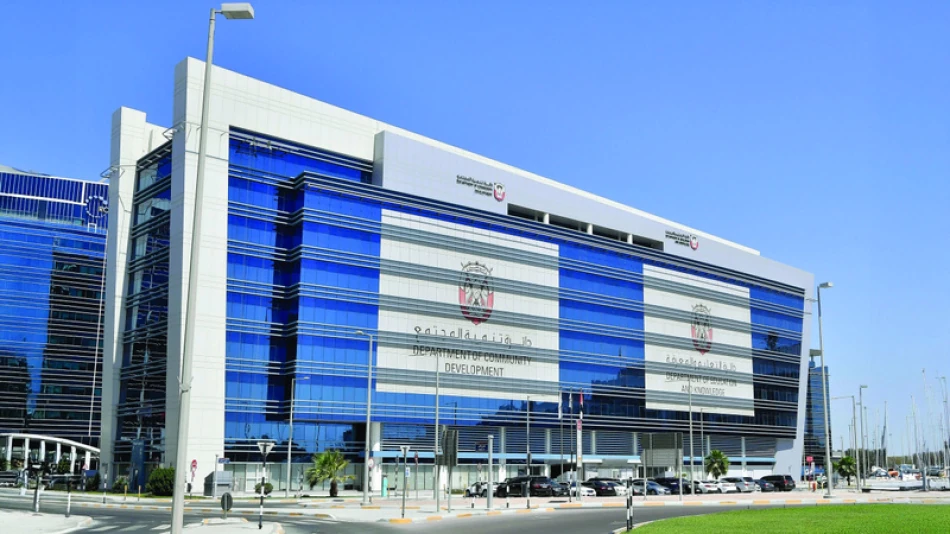
Groundbreaking 'Riyada' Framework Revolutionizes Social Care Quality Assessment
Abu Dhabi Launches Comprehensive Framework to Transform Social Care Quality Standards
Abu Dhabi's Department of Community Development has unveiled "Riyadah," an innovative quality assessment framework designed to revolutionize social care services across the emirate. This systematic approach represents a significant shift toward evidence-based social service delivery, positioning Abu Dhabi as a regional leader in modernizing welfare systems through standardized evaluation metrics.
Strategic Foundation Built on Global Best Practices
The Riyadah framework establishes a comprehensive evaluation system for social care quality, drawing from international best practices to create locally relevant standards. The initiative reflects Abu Dhabi's broader strategy of professionalizing public services while maintaining cultural sensitivity in social welfare delivery.
The framework operates on five core principles: beneficiary-focused services, effective governance, transparency and trust, continuous improvement, and innovation with sustainability. These pillars mirror successful social care reforms implemented in countries like Singapore and Denmark, where systematic quality frameworks have demonstrably improved service outcomes.
Regulatory Impact and Market Implications
Standardization Across Service Providers
By creating unified service delivery principles, the framework addresses a critical gap in the UAE's social care landscape. Previously, quality standards varied significantly across different providers and institutions, making it difficult for families and individuals to assess service quality objectively.
The regulatory tool provides clear quality definitions, enabling systematic policy improvements and coordination between the Department of Community Development and various social sector entities. This standardization is expected to drive consolidation among smaller, less efficient providers while rewarding those who invest in quality improvements.
Performance Classification System
The framework introduces a performance-based classification system for social care facilities, similar to healthcare accreditation models used in countries like Australia and Canada. Facilities will be evaluated across different service categories, with continuous improvement requirements and targeted enhancement plans based on assessment results.
This approach creates competitive pressure among providers while establishing clear pathways for quality enhancement. Organizations that achieve higher classifications may benefit from preferential treatment in government contracts and public recognition, creating financial incentives for quality investment.
Regional Leadership in Social Care Innovation
Abu Dhabi's initiative positions the emirate ahead of regional competitors in social care modernization. While other GCC countries have focused primarily on healthcare and education reforms, Abu Dhabi's comprehensive approach to social services demonstrates a more holistic vision of human development.
The framework's emphasis on continuous improvement and risk mitigation suggests lessons learned from global social care crises, including those exposed during the COVID-19 pandemic. By implementing proactive quality measures, Abu Dhabi aims to build resilience into its social care system before facing external pressures.
Implementation Challenges and Success Factors
The framework's success will largely depend on consistent implementation across Abu Dhabi's diverse social care ecosystem. Key challenges include training evaluators, establishing baseline measurements, and ensuring buy-in from existing service providers who may resist additional oversight.
However, the initiative benefits from Abu Dhabi's strong governance culture and significant public resources. The emirate's track record in implementing large-scale reforms, from urban planning to economic diversification, suggests institutional capacity to execute this social care transformation effectively.
The Riyadah framework represents more than administrative reform—it signals Abu Dhabi's commitment to evidence-based social policy and positions the emirate as a testing ground for next-generation welfare systems in the Middle East.
Most Viewed News

 Sara Khaled
Sara Khaled






